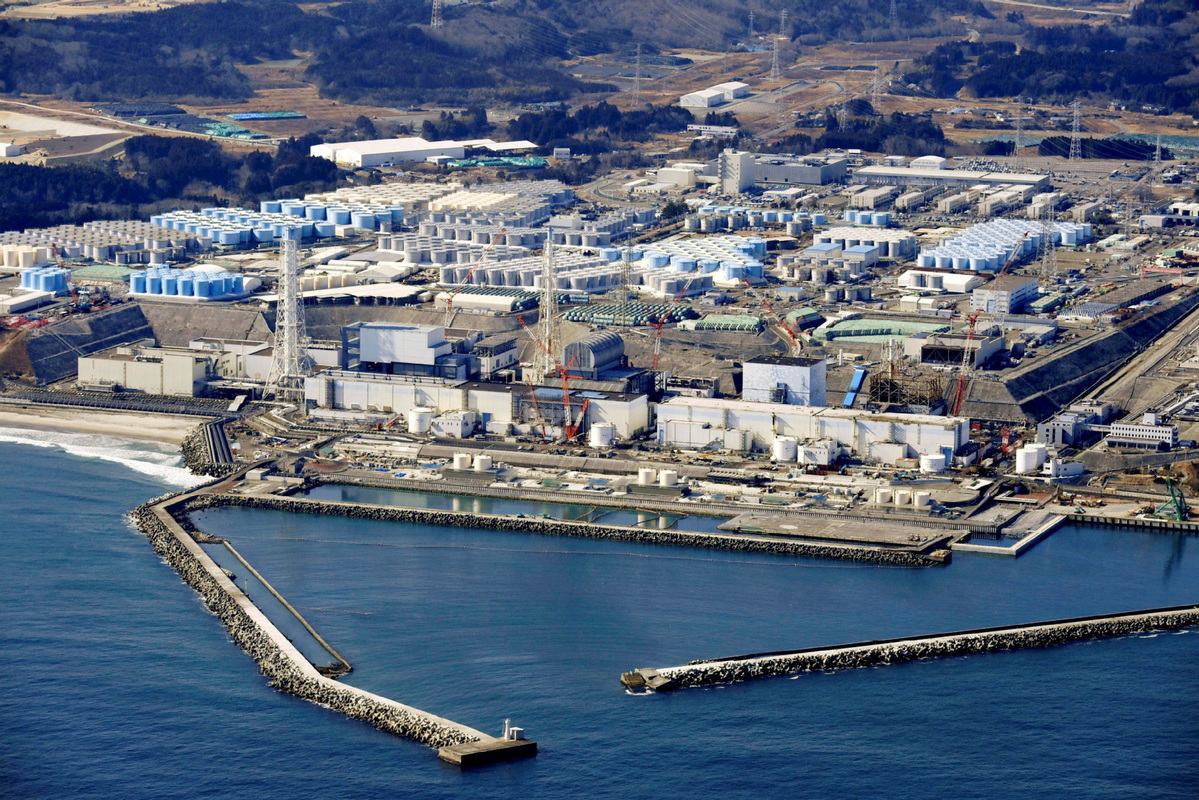Japan's plan to release Fukushima water slammed
By LIU JIANQIAO | China Daily | Updated: 2023-05-30 09:37

Beijing strongly objects to Tokyo's unilateral decision to dump Fukushima nuclear-contaminated water into the ocean and calls for it not to activate the discharge plan before reaching an agreement with the parties concerned, a representative from China told the World Health Assembly in Geneva on Saturday.
The Chinese representative said the discharge process for nuclear-contaminated water will take as long as 30 years. The coast of Fukushima has the strongest ocean currents in the world. Ten years after the nuclear-contaminated water is discharged into the sea, the radionuclides will spread to the seas of the world. This move transfers the risk to all human beings.
The discharge plan is not a private matter of Japan, but a major issue concerning global public health, he said, adding many countries and stakeholders have expressed serious concerns. Before reaching an agreement with all parties, the Japanese side should not initiate the discharge of nuclear-contaminated water into the sea without authorization, he said.
Some scientists said the impact of long-term, low-dose exposures to radionuclides is unknown and the planned release should be delayed, according to a report from The Associated Press.
The Chinese representative said Japan's justification for the discharge of such water into the sea can be summed up in one sentence: The water is nontoxic and the discharge is reasonable.
"What the Japanese side said is completely untenable, and convincing answers must be given to a series of questions.
"First, if the contaminated water is safe, why doesn't Japan use it on its own? Why is the water not used for agricultural or industrial purposes? And why is it not discharged into domestic lakes?
"Second, is discharging contaminated water into the sea the only viable option?
"Third, what will be the long-term global impact of the release of nuclear-contaminated water into the ocean?"
Such move by Japan is simply to save its own money while throwing the world into disaster, he said, adding the country has an ulterior motive in discharging the nuclear-contaminated water into the sea because the government knows it is harmful.
"We once again urge Japan to faithfully fulfill its international obligations and to deal with contaminated water in the safest and most reasonable way after sufficient negotiations with relevant parties and international organizations, including neighboring countries, and subject to strict international supervision," he said.
In April 2021, the Japanese government officially decided to dump millions of tons of nuclear-contaminated water from the Fukushima Daiichi Nuclear Power Plant into the Pacific Ocean after treatment.
Many countries, including China, have expressed their firm opposition. Russia has also expressed serious concern at this year's WHA.
Despite all the reasonable appeals and demands from the international community, Japan still insists on pushing forward its initial plans.
Agencies via Xinhua contributed to this story.
























